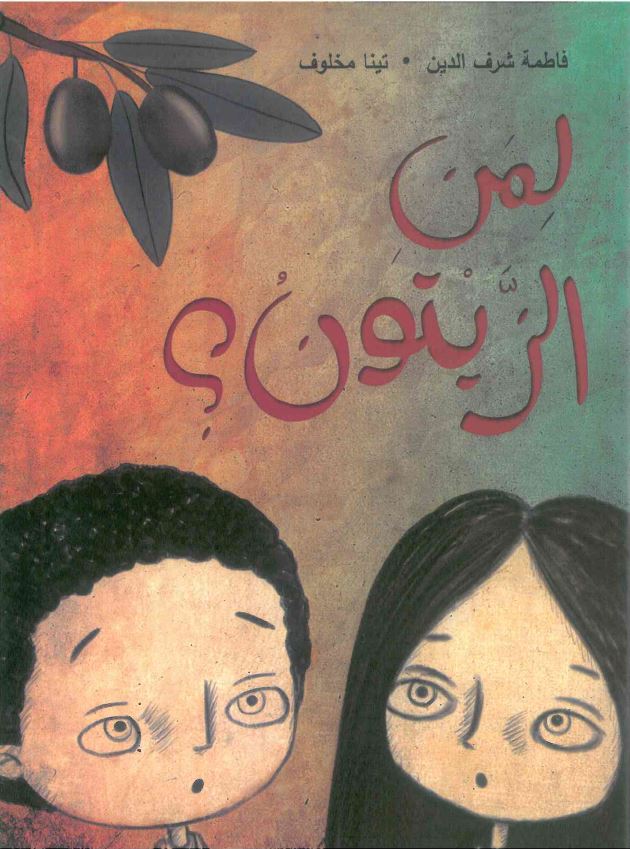
While grownups from two families argue over who owns the olives of the ancient tree that spreads over their yards, the neighboring children find a way to communicate and play.

While grownups from two families argue over who owns the olives of the ancient tree that spreads over their yards, the neighboring children find a way to communicate and play.
While the adults were busy fighting over who has the rights to the olive tree that spreads across the yard of two families, and the birds picked away at the olives, the children of the quarrelling families, Jad and Rana, found ways to communicate and form a friendship. This book raises the ...
Read MoreWhile the adults were busy fighting over who has the rights to the olive tree that spreads across the yard of two families, and the birds picked away at the olives, the children of the quarrelling families, Jad and Rana, found ways to communicate and form a friendship. This book raises the issue of how can we settle disputes with others through coming to an understanding rather than fighting. And how can we find common ground that brings us closer rather than pulls us apart?
المربية العزيزة،
موضوع الخلافات شائعٌ في أدب الأطفال، وعادة ما تتعرّض القصص للخلافات بين الأطفال أنفسهم، وتقترح على الكبار والصّغار طرقًا للتعامل معها. تكمن خاصّية كتاب "لمن الزّيتون" في أنّه يعرض، على نحوٍ مختلف، خلافًا بين فريقين من "الكبار" حول ملكية الشجرة، تختلف مواقف الصّغار حوله. بعضهم يشارك في الخلاف وفي تراشق الاتّهامات والتعبير عن الغضب، متأثرًا بموقف الكبار من طرفه ومردّدًا له، والبعض الآخر، متمثّلاً بجاد ورنا، يختار أن يتعامل مع الخلاف على نحو آخر. ما الذي تقوله القصّة في الحقيقة؟
تخاطب القصّة "الكبار" فينا وتشير إلى مدى تأثّر الأطفال بنا. الكبير هو قدوة للصغير، ومنه يتشرّب المواقف والأفكار والقيم والسّلوكيات سواء قصد الكبير ذلك أم لم يقصده. يشهد الأطفال مواقف يومية تحدث أمامهم يتصّرف فيها الكبار على نحوٍ يتقمّصه الصّغار، ويصبح جزءًا من مبناهم الدّاخلي القِيَمي والعاطفي والاجتماعي، حتّى لو يكن الكبار واعين إلى أنّهم يُقحمون الأطفال في خلافاتهم.
لكنّ القصّة تقترح موقفًا آخر للأطفال متمثّلاً بجاد ورنا الّلذين رفضا على نحوٍ صامت أن يشاركا في الخلاف، واختارا أن يجدا القواسم المشتركة بينهما بدل القواسم المفرّقة.